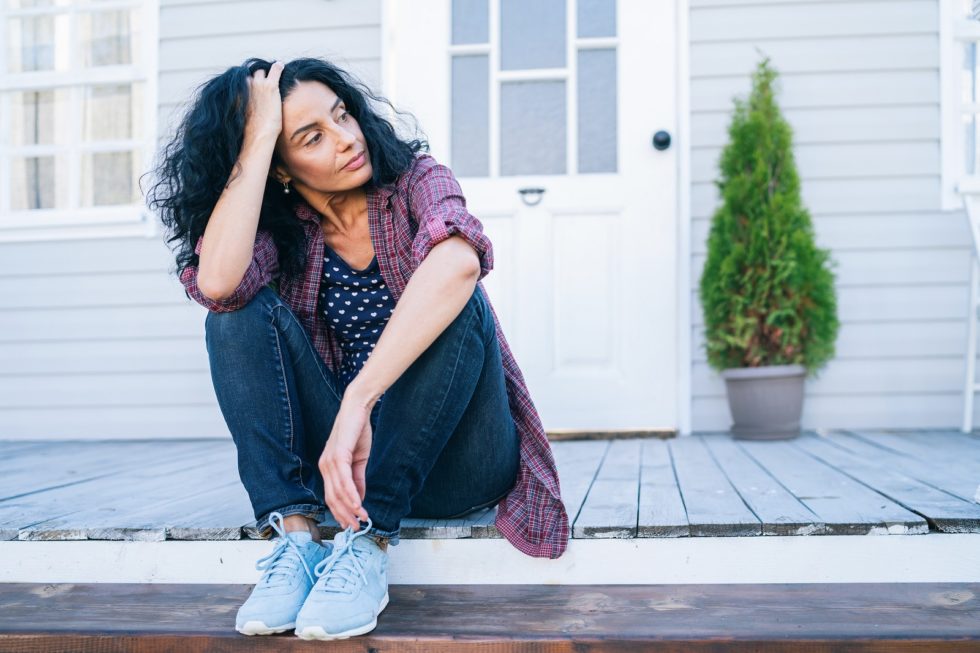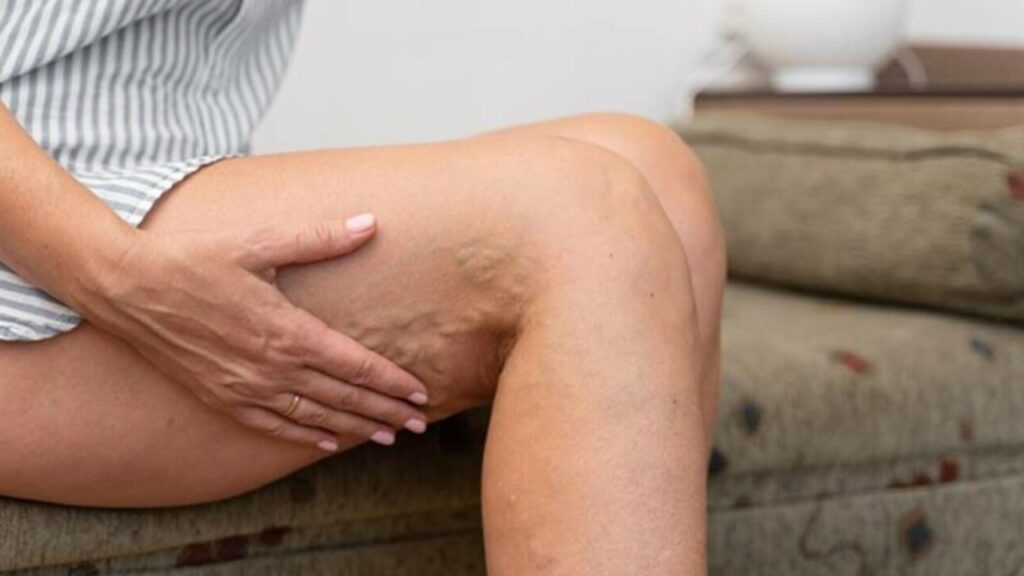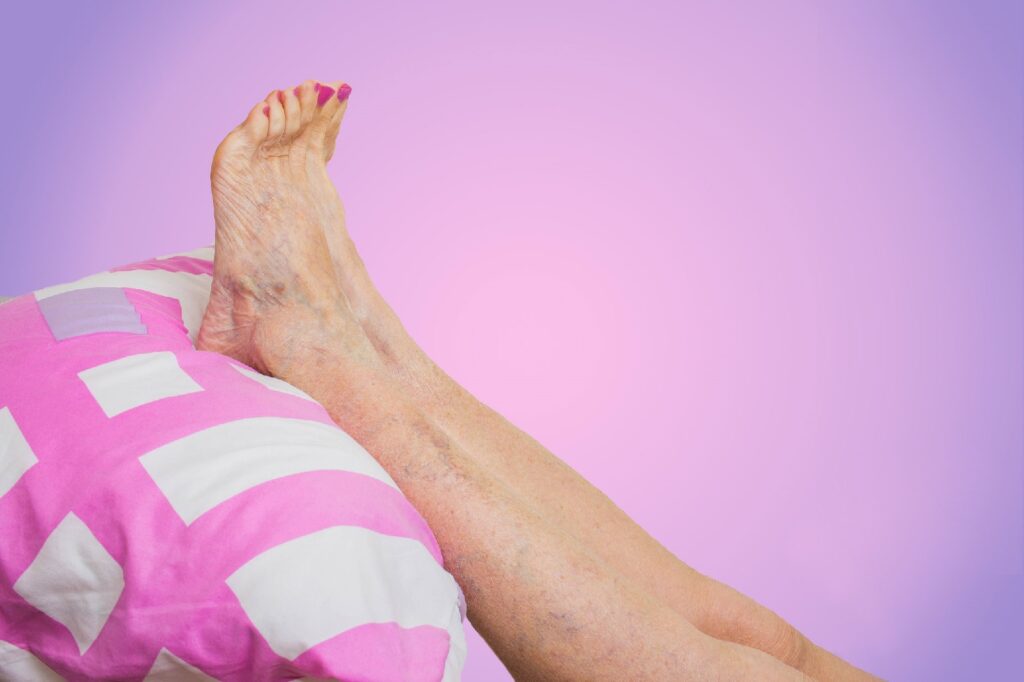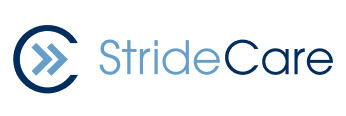Varicose Veins Treatment: Is There an Age Limit?
Author: StrideCare Internal Team

Paula* first noticed she was developing varicose veins when she was in her 40s. They were more of a cosmetic annoyance at first. However, over the last 10 years, they’ve become bigger, more painful, and now affect how she lives her life. She wants to get rid of them, but can she? Is there an age limit to varicose veins treatment?
The answer to if there is an age limit to having varicose veins treated is “no.” While age is typically a factor for determining if a person is eligible for most medical procedures, that isn’t the case with varicose veins. Even a healthy woman in her 60s can have her veins treated. Because advanced non-surgical treatment is available, healthy patients of any age can benefit from varicose veins treatment. In fact, varicose veins are more common in women and older adults between 40 and 80.
Having varicose veins treatment as early as possible can eliminate a variety of symptoms as you age:
- Achy or heavy feeling in your legs
- Burning, throbbing, itching, and swelling
- Muscle cramps
- Discomfort after sitting or standing for too long
- Skin discoloration
- Numb legs
- Cold legs
- Bruising
What Age Should You Treat Varicose Veins?
The quick answer is right now. Putting off varicose veins treatment because you think you’re too old or that there is an age limit to having varicose veins treated is never advisable, especially when you’re in pain. As long as you are healthy, active, and have undergone a thorough evaluation from one of our doctors at StrideCare, age is not an issue. In fact, the only link between age and varicose veins is that they tend to develop more as we age.
As we age, veins can develop issues and become diseased. In patients with diseased veins, the vein valves weaken and don’t work like they did when we were younger. The veins can pool with blood, and as a result, lead to enlarged or swollen veins due to fluid buildup. Age is just one factor, however. Heredity, weight gain, leading a sedentary lifestyle, and pregnancy are also risk factors for developing varicose veins.

Not treating diseased veins can lead to serious complications:
- Blood clots — Untreated varicose veins can lead to a fatal condition called Deep Vein Thrombosis (DVT). While not visible to the naked eye, these clots can eventually loosen and make their way to the lungs.
- Continued bleeding — If you have varicose veins and suffer any type of small cut, even if only a surface-level injury, bleeding can be difficult to stop, and healing slows down. This is because there is limited blood circulation.
- Skin infections — Itching and swelling can increase your risk of developing skin infections.
- Leg ulcers — These are chronic sores that are slow to heal and can lead to major complications later in life.
What Are Treatment Options for Varicose Veins at Any Age?
If you are in your 50s, 60s, 70s, or even 80s, and you’re slowing down due to the pain and discomfort of varicose veins, there are options to get you back on your feet and enjoying life again.
Elevate your legs
Elevating your feet so that they are above your heart can decrease the pressure on your veins and reduce painful symptoms. Also, wiggle your toes and avoid crossing your legs for an extended period.

Compression stockings
Wearing compression stockings in the morning and when you get out of bed are a great way to encourage healthy blood flow by applying pressure on your lower legs.
Sclerotherapy
A minimally invasive treatment that involves injecting a small amount of specially formulated chemical solution into the veins can reduce pain and discomfort.
Radiofrequency Ablation
With this procedure, a small catheter is used to emit radiofrequency waves into the affected veins. As a result, blood flow to the vein is cut off to relieve symptoms like heaviness and aching.
Microfoam Ablation
This minimally invasive procedure takes less than an hour to complete and involves using specially formulated microfilm to relieve symptoms without the use of heat or tumescent.
Phlebectomy
This is a surgical procedure that involves removing varicose veins in the body and is only used as a last resort after not seeing any improvements from the options above.
At StrideCare, Excellent Patient Care Is Our Passion
StrideCare has long been a leader in performing leading-edge procedures to treat vein disease such as varicose veins, spider veins, restless leg syndrome, pelvic congestion syndrome, varicoceles and more—all the while providing compassionate patient care. The vascular physicians at StrideCare are board certified diagnostic radiologists with additional fellowship training in vascular and interventional radiology.
If you need varicose veins treatment, or you have questions on how to avoid the onset of varicose veins, the experts at StrideCare will recommend an individualized plan to help you get the best results. Request an appointment for a vein disease evaluation to discuss your options.
Prior to starting any new treatment or questions regarding a medical condition, always seek the advice of your doctor or other qualified health provider. This information is not a substitute for professional medical advice.
StrideCare serves the South Texas area including Houston, San Antonio, Austin, Round Rock, Bastrop, Brushy Creek, Cedar Park, Converse, Georgetown, Hutto, Kyle, Leander, Marble Falls, New Braunfels, Pasadena, Pearland, Pflugerville, San Marcos, Schertz, Houston, Sugar Land, Katy, Webster, Bay City, Clear Lake, Lake Jackson, The Woodlands, Universal City, Spring, Kingwood, Stafford, Conroe, Texas City, Cypress, League City, Bellaire, and more.
*Patient stories are true. Names and/or photos may be changed to protect patient confidentiality.


